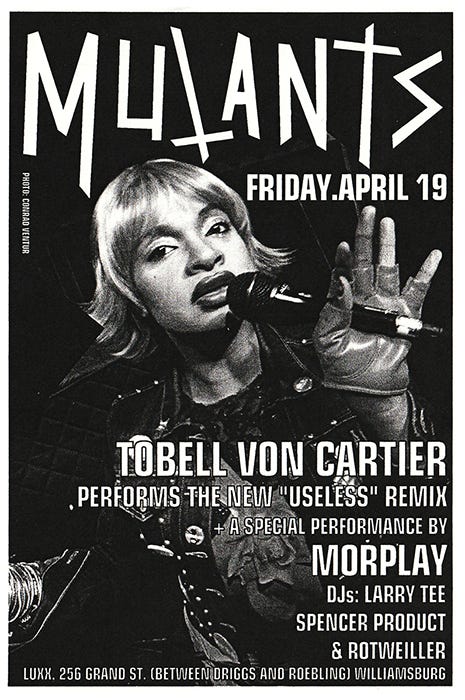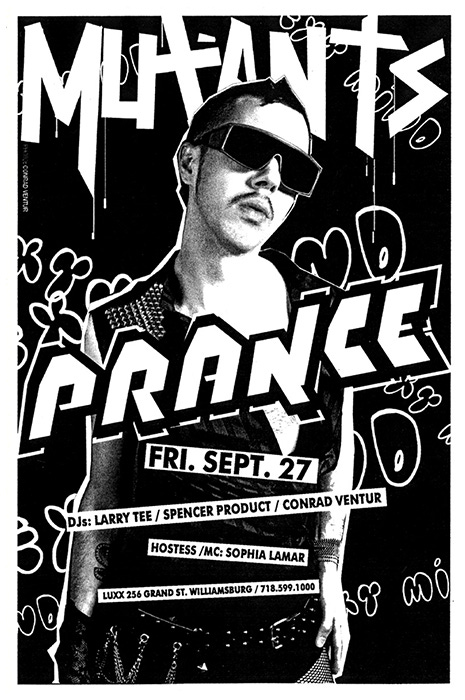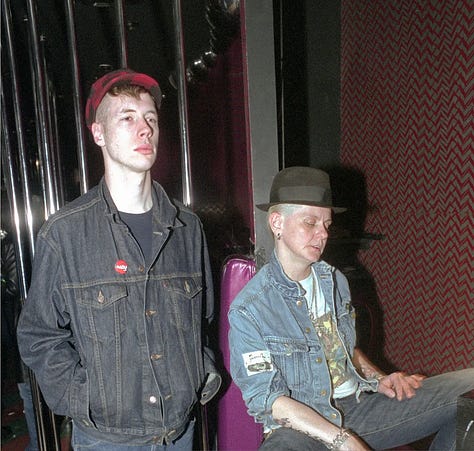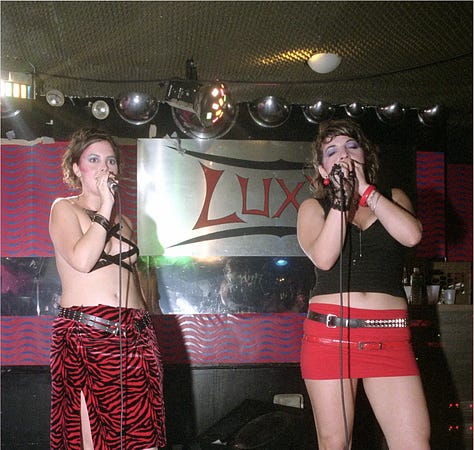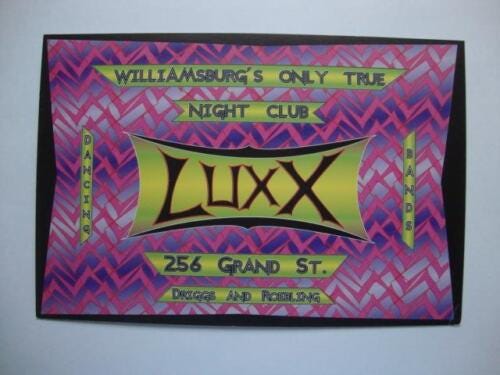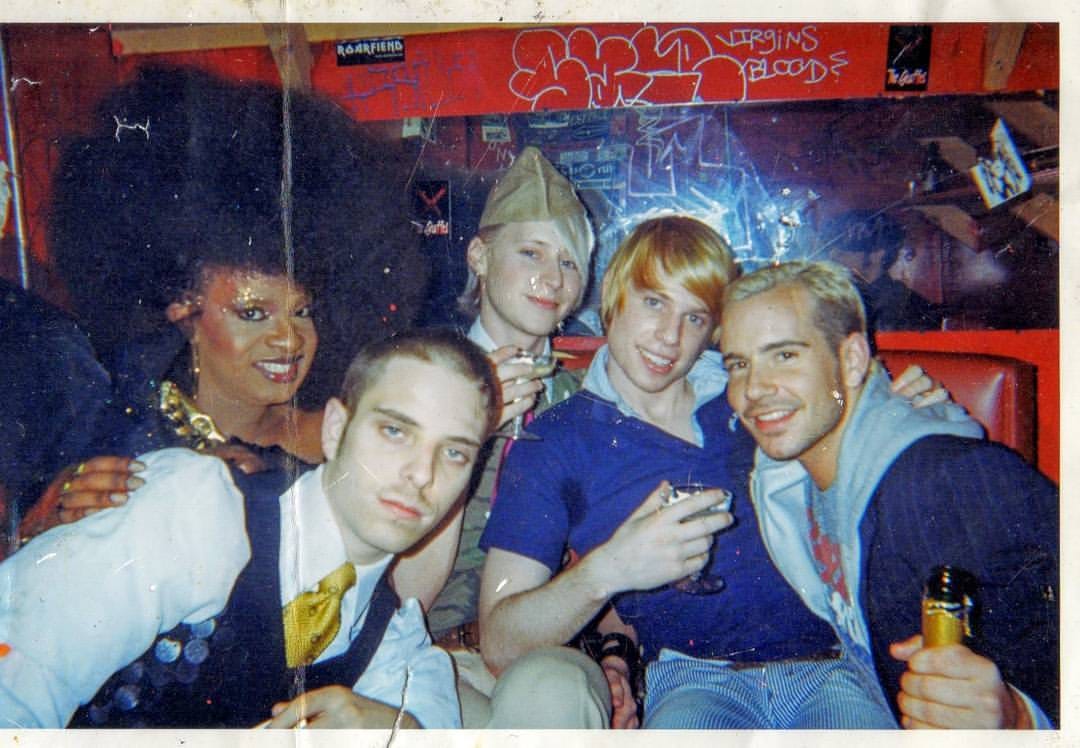"Do I Look Like A Slut?" - Exploring The Early 2000s Queer Electroclash Scene At Luxx
Billed humorously as "Williamsburg's Only True Night Club", Luxx was a small-sized dancehall and concert venue located at 256 Grand Street between Driggs and Roebling in Brooklyn run by legendary DJ and party promoter Larry Tee that became known in the early 2000s for Tee's Electroclash and LGBTQ-heavy parties such as "Berliniamsburg" & "Mutants."
Luxx first opened in 2001. By 2003, a NYPost article discussing Electroclash explored the heavy influence that Luxx and Tee had on the genre: "Electroclash – a style of gritty dance music with a decidedly ’80s influence – was born in Brooklyn, the brainchild of producer and promoter Larry Tee. Now, the term Electroclash – which he first coined in 2001 – has become a full-fledged pop culture buzzword. Madonna is said to be plumming the sound for her new album, & Tee’s Berliniamsburg, an all-Electroclash affair at the miniature Williamsburg club, Luxx, is still regarded as one of the more culturally significant nightspots of the moment."
In 2001, Luxx hosted an all-Electroclash music festival which featured queer acts like Fischer Spooner, Peaches and Tee himself. Other queer acts to perform at Luxx over the years included The Scissor Sisters, The Lunachicks, Tobell Von Cartier, Kevin Aviance, and more.
Tee, who famously helped write and produce RuPaul's "Supermodel of the World", described the defining features of Electroclash, which compared to techno & electronica, put more emphasis on vocals and charismatic performers: “When it comes to buying a record, people tend to buy artists, not producers...People relate to Electroclash artists, like Fischer Spooner, W.I.T. and Peaches because they all have identifiable leaders...It’s driven by rock ‘n’ roll star power, politics and fashion, and it’s totally propelled by some very strong female performers.”
Luxx's small size could only contain 200 bodies but every weekend the popular Berliniamsburg bash challenged the space with swelling crowds of skinny queer hipsters. OUT Mag in 2002 called Luxx "THE place to play" and dubbed it a "pounding Williamsburg dance floor with a great mixed crowd." According to Tee, despite reaching crowd capacity on the regular, he hoped to continue hosting Berliniamsburg at Luxx: “We keep it going because we want the stage for the artists to develop – and being out in Brooklyn really weeds out the tourists,” says Tee. “We try to keep the bridge-and-tunnel people away – except for us the bridge and tunnel crowd are from Manhattan.”
Tee added: “We’re trying to make it so Manhattanites can say ‘Wow, we’re cool again,'”. Unfortunately, by the end of 2003, Luxx had run its course and it was announced that it would close for good. It then became another short-lived gay dance club called Grand Central followed by another rock & roll venue called Trash Bar. The space is now occupied by a boutique boxing and fitness studio.
Patrons and performers alike reflected on their love (and hate) for Luxx:
Frank Gargiulo (@frankie_boy_gargiulo) commented that Luxx: “Was the best!”
Abigail Savage (thatsavage937) lamented: “Those were the days.”
Isla Ebony (@pcrush) recalled: “I made a shirt back then that wrote “Luxx Suxx”…cause hipster 😂😂😂.”
Francisco Gutiérrez (@fgutz) wrote: “Loved Luxx. My friend worked for Larry Tee and helped put together that Electroclash compilation (he actually did most of the work finding those acts).”
Meanwhile, Ana Matronic (@msanamatronic) of The Scissor Sisters educated us all: “Electroclash as a sound has its roots in The Hague and Ghent with artists like Legowelt & Soulwax, and in Detroit with artists like .adult, plus the no wave/Italo disco movements of the early 80s. Learn it & learn it well, children!”
